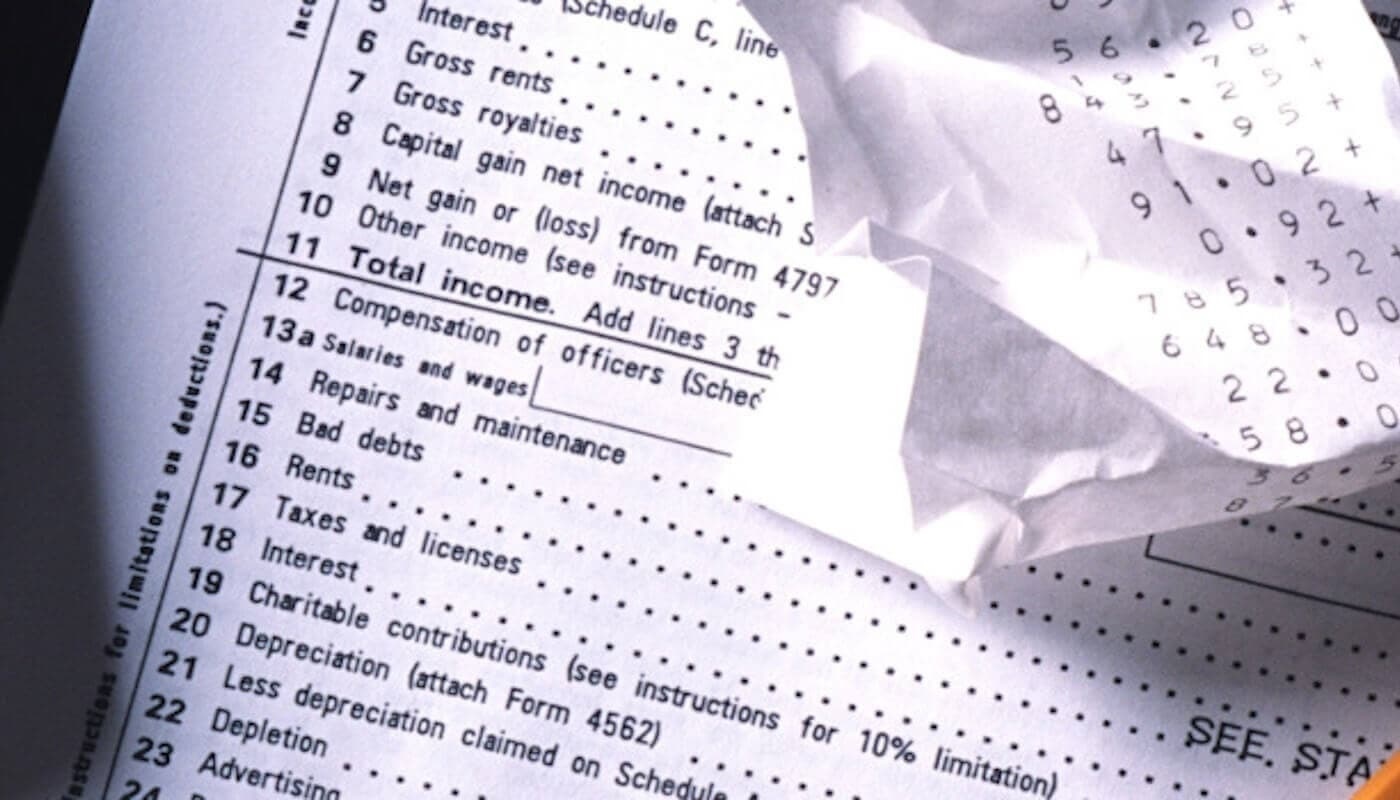16 ways business owners can save on taxes
Editorial Team
12 min read
- Taxes
- Employee benefits
- Vehicle expenses
- Self-employed health insurance deduction
- First-year depreciation of business assets (Section 179)
- Continued depreciation on business assets
- Home office deduction
- Internet and other service fees
- Phone service
- Professional dues and subscriptions
- Bad debts
- Interest from loans
- One-half of self-employment tax
- Contract labor expenses
- Empowerment zone credits
- Qualified business income deduction
Though tax season may not be your favorite time of year, how to save money on your taxes may be a topic that piques your interest.
The IRS offers dozens of tax deductions for business owners and entrepreneurs each year. Not only do many deductions reduce your income tax, they also reduce your income subject to self-employment tax.
Reducing your adjusted gross income may help lower your tax in other ways, too. For example, a lower adjusted gross income may mean you qualify for education credits or other perks.1 Here are key business deductions that may help you reduce the taxes on your federal return.
Please share your contact information
to access our premium content.
Deduction #1: Taxes
Many taxes you pay in the course of your business are deductible as business expenses.2 Some taxes are already included in business expenses you pay. For example, you pay a fuel tax for gas you use to drive your vehicle for business, and the tax is included in the price of gas. When you pay sales tax on office supplies or a delivery truck, the sales tax is included in your office expense, or in the cost of the truck.
You pay other taxes separately and can deduct them as taxes on your business return. These include state tax on gross business income, federal and state payroll taxes, personal property tax on business assets, real estate taxes on business property, and excise tax you pay to the state. You cannot deduct federal income tax.
Deduction #2: Employee benefits
Benefits you pay under qualified benefit programs to your employees are a deductible expense.3 For example, you can deduct your cost of qualified accident and health plans, adoption assistance, cafeteria plans, dependent care assistance, educational assistance, and group-term life insurance coverage for your employees.
Deduction #3: Vehicle expenses
If you use your vehicle for business, your vehicle expenses can provide a valuable deduction. Every time you go to the office supply or other store for business, meet with a client, or drive for other company business, track your business miles so you get the tax deductions you deserve.
You can usually choose one of two ways to calculate your vehicle expenses. You can take the standard mileage rate, or you can deduct your actual expenses for driving your vehicle for business.4
To claim a deduction for this, the IRS will require you to track your business, commuting, and personal miles, and the business purpose of your miles, regardless of which method you choose. If you want to deduct actual expenses, you must also track expenses for gas, oil, service, interest on a vehicle loan, lease payments, insurance, and depreciation.
You must track actual expenses in some cases; for example if you did not use the standard mileage rate the first year you used your vehicle in business, if you claimed a section 179 deduction or special depreciation allowance on the vehicle, or if you operate five or more cars at the same time. If you run your business from your home, you can start tracking business mileage when you leave your driveway on company business. If you have another main place of business; for example, if you operate a retail store, you can only count business mileage from your main business location. Your trips from home to the store would be commuting expenses, which are not deductible.
Deduction #4: Self-employed health insurance deduction
If you have income from self-employment, and you buy your own health insurance, you may qualify to deduct your premiums as an adjustment from income.5
To qualify for the self-employed health insurance deduction, you must be ineligible for health insurance benefits through an employer – your own or your spouse’s. The coverage can be for you, your spouse, and your dependents. The deduction cannot be more than your business net income.
Deduction #5: First-year depreciation of business assets (Section 179)
A special provision in the federal tax code allows you to deduct the full amount you invest in business assets in the year you purchase them, rather than spreading out the deductions over a period of years.6 This Section 179 expensing helps simplify record keeping and helps you get the tax benefit of your investment sooner. For 2019, the deduction limit on Section 179 was $1,000,000, and the bonus depreciation was 100%.7
Deduction #6: Continued depreciation on business assets
If you purchased business equipment and other business assets in previous years but did not fully expense them in the year you purchased them, make sure you get the deduction for this year’s depreciation for each asset.
Deduction #7: Home office deduction
If you have an area in your home that you use as your home office, or for any other business purpose, you may be able to take a deduction for a home office. You’ll have to meet certain rules. In most cases, the space you claim as your home office must be devoted to your business and nothing else. It doesn’t have to fill a whole room, however. Say you use half your den as a home office. You may be able to deduct expenses based on the square footage that you use exclusively for business.
If your business meets the applicable IRS qualifications, there are two special cases in which you may not need to meet the exclusive use rule: If you use your home to store inventory or product samples, or if you run a daycare facility.
When you claim a home office, you deduct indirect and direct expenses. Direct expenses are those that apply only to your home office, such as painting or repairing just your office. You claim 100 percent of direct expenses.
Indirect expenses include a percentage of the amount you pay for electricity, rent, and so on for your whole house. To find the percentage, divide the total square footage of your home by the number of square feet in your home office. If finding all those utility bills and other receipts sounds like too much trouble, the IRS has another option you may prefer. Since 2013, the IRS lets you use a simplified home office deduction. You can take a flat $5 per square foot deduction for your home office, up to a maximum of 300 square feet.8
Deduction #8: Internet and other service fees
The monthly fees you pay for Internet service really add up. So might your costs to keep your work computer running. You may also pay for subscriptions for virus and malware control, professional references, and subscription software.
Take the time to look for all Internet, subscription, and other service fees you pay that may entitle you to a deduction.9
Deduction #9: Phone service
If you have separate phones for business and personal use, regardless of whether they are landlines or cell phones, you typically can take full deductions for the lines you use for your business.9
If you only have one landline phone for both business and personal use, the Internal Revenue Service does not allow you to deduct its cost. However, you can deduct any long distance charges related to your business.
If you have a second line or a cell phone that you use for business and personal calls, you may be able to deduct a percentage of the cost of your phone service. For example, if you use your cell phone 75 percent for business and 25 percent for personal calls, you can deduct 75 percent of your phone bill. You may want to request an itemized phone bill to help prove the business usage of your phone.
Deduction #10: Professional dues and subscriptions
Professional dues and subscriptions add up, and they’re easy to miss as a deduction if you pay them automatically every year. Deduct the cost of trade journals, magazine subscriptions related to your work, and dues to maintain your professional license, for example.10 Unfortunately, you can’t deduct dues to clubs the IRS considers to have more of a social or recreational aspect, such as dues to business, social, athletic, luncheon, sporting, airline, and hotel clubs.
Deduction #11: Bad debts
If someone owes you a debt that comes from operating your business, you may be able to take a deduction on your business return.11
If you use the accrual method in your business, you may have bad debts when customers buy things on account and then don’t pay you. If you use the cash method, however, as many small businesses do, you cannot generally take a bad debt deduction for uncollectible customer accounts. That’s because you did not count the customer’s purchase as income when they made the purchase. If you make loans in the course of your business to suppliers, clients, employees, and so on, you can take a business deduction for the bad debts when these loans become uncollectible.
Deduction #12: Interest from loans
If, like many other small businesses, you needed a loan or a line of credit to keep your business going, you may be able to deduct interest on your business loan on your tax return. This deduction applies specifically to interest on a bank loan or or interest from a line of credit from a financial institution. Interest from a loan granted by a friend or family member is not considered eligible for a deduction from the IRS. For more guidelines, check out IRS Publication 535.
Deduction #13: One-half of self-employment tax
If you’re self-employed, you pay the full Social Security and Medicare tax on your self-employment income. There’s no employer to share in the cost. To help compensate, the IRS allows you to deduct one-half of your self-employment tax as an adjustment to income on your tax return.12
Deduction #14: Contract labor expenses
As more small businesses turn to contractors and gig workers for help, the IRS is providing deductions and incentives for working with freelancers. You may be eligible to claim your contractor expenses as tax deductions. Make sure you provide details of your contractor payments using Form 1099-MISC. And, submit IRS Form-1096 which provides further details of non-employee payments.
Deduction #15: Empowerment zone credits
Empowerment zones were created by the Empowerment Zones and Enterprise Communities Act of 1993. These zones are designated in rural and urban areas as places in need of economic investment to combat unemployment and lack of opportunities. Businesses that are located within these zones are eligible for tax incentives.
Economic empowerment zone credits can be advantageous for businesses that qualify. A business located within an empowerment zone that hires employees living within that same zone is able to claim the credit, as well as 20% of what that employee is paid — capped at $3,000 per year per employee. There are no limits to how many qualified zone employees you can claim, and they can be full or part-time employees.
To see if you’re located in an empowerment zone, check out this address locator on Google Maps.
Deduction #16: Qualified business income deduction (QBI)
Sole proprietorships, partnerships, S corporations, and some trusts and estates may be eligible to claim a qualified business income (QBI) deduction – also called Section 199A.
Qualified business income refers to the ordinary, non-investment income your company generates. It could be your revenue from sales — minus interest or dividend income — or any other gains from the sale of property. It excludes earned income like salaries and guaranteed payments. The Section 199A deduction enables qualifying business owners to deduct 20% of their business profits from their own taxes.
What does this mean in practice? Imagine you own a company that earns $200,000 in profits. The QBI deduction could lower your taxable business revenue to $160,000. Business owners can save on their income taxes with this deduction, too — although note that savings may vary based on the type of business you own, your tax rate, and your marital status.
New tax credits and deductions are introduced each year. To keep up with the opportunities that may be available to your business, check with a CPA who can provide more specific tax guidance.
Saving on taxes isn’t the only thing Clover can help support. Take advantage of Clover’s POS Systems and business management solutions to help protect what’s important to you and streamline your business operations.
The external hyperlinks were provided for informational purposes only. Please contact each company directly to obtain additional information as Clover does not assume any responsibility or liability for any information and communications shown here and on any third party web links.
This information is provided for informational purposes only and should not be construed as legal, financial, or tax advice. Readers should contact their attorneys, financial advisors, or tax professionals to obtain advice with respect to any particular matter.
1 “Education Credits: Questions and Answers,” IRS
2 “What Business Tax Costs Can Be Deducted?” The Balance Small Business, 26 August 2019
3 “What Employee Benefits Are Deductible for My Business?” The Balance Small Business, 11 June 2019
4 “IRS Releases 2019 Standard Mileage Rates,” International Foundation of Employee Benefit Plans
5 “How the self-employed health insurance deduction works,” Credit Karma, 12 November 2019
6 “Section 179 Deduction,” Section179.org
7 “Section 179 Information for Previous Years,” Section 179.org
8 “Taxes from A to Z 2019: H Is for Home Office Deduction,” Forbes, 21 March 2019
9 “15 Tax Deductions and Benefits for the Self-Employed,” Investopedia, 7 November 2019
10 “Deducting Dues and Subscriptions,” NOLO
11 “Topic No. 453 Bad Debt Deduction,” IRS 1
12 “All About Self-Employment Tax,” Smart Asset, 10 December 2019
Related Posts
5 questions to ask to create a striking window display
4 reasons you should list your business with Apple Maps
Popular Topics
Stay In Touch
Sign up and learn more about Clover.
Thank you for your subscription!
Recent Stories
- How to design a restaurant recipe card–and share it
- Is your business a victim of shrinkflation? Don’t pay more for shorter receipt rolls.
- How to buy a restaurant
Please share your contact information
to access our premium content.
Thank you for sharing your contact information.
Download Now






